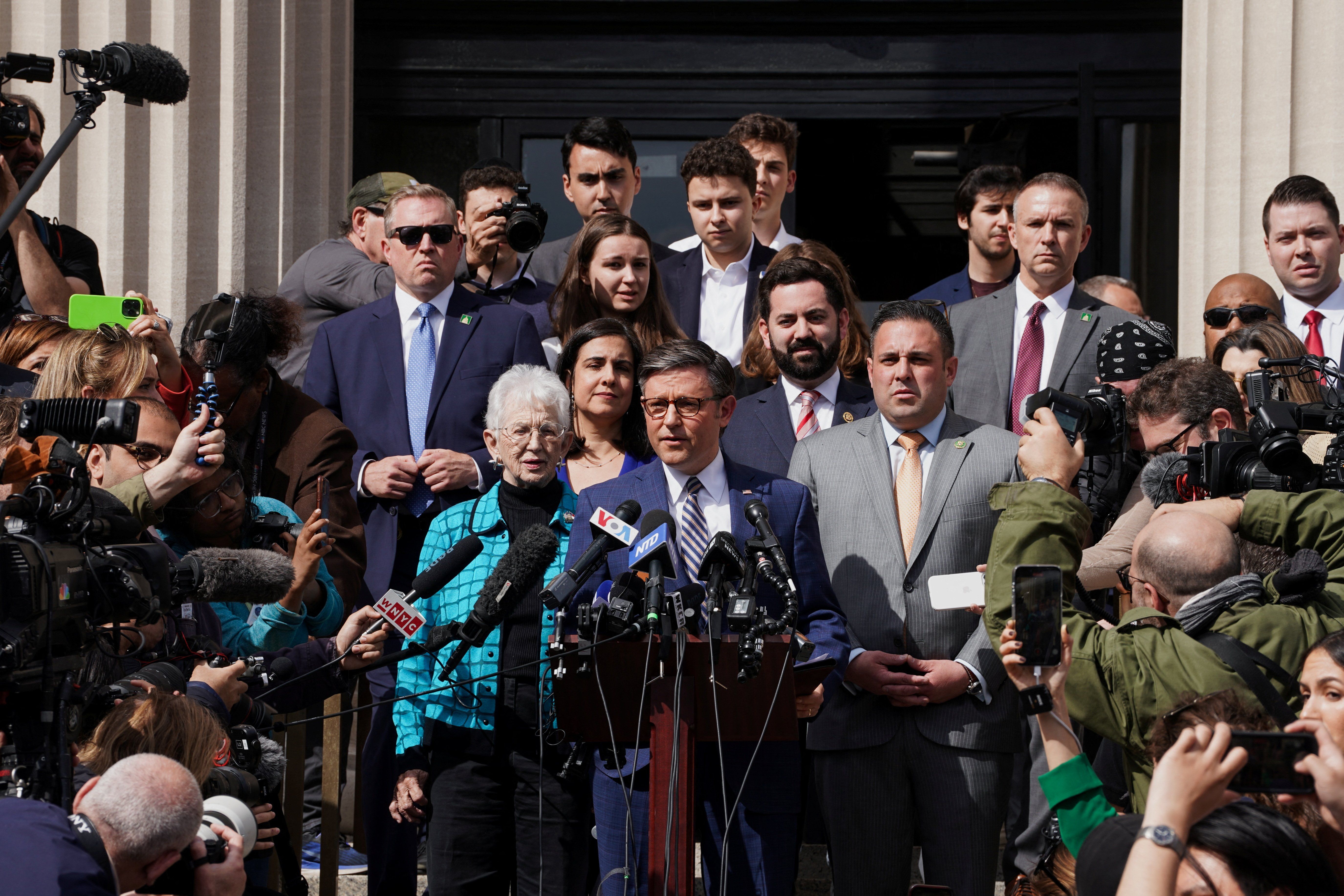“There are so many cameras on campus my mom is going to find out I vape on the cover of the New York Times,” said a senior at Columbia University who I shall keep anonymous for her mother’s sake. But her remark accurately summarizes what it's like on campus these days.
On Tuesday, the cameras were out for House Speaker Mike Johnson and several other GOP lawmakers, who held a press conference about antisemitism on the steps of Columbia’s iconic Low Library.
Johnson demanded that the White House crack down on campus protests and called for the resignation of Columbia President Nemat "Minouche" Shafik.
“If these threats and intimidation are not stopped,” he warned, looking out at the two dozen or so tents of the Gaza Solidarity Encampment erected a week ago, “there is an appropriate time for the National Guard.”
Down below, hundreds of students booed and chanted, “Mike, you suck!”
“All students deserve protection, but Jewish students need to be able to go to class,” said House Education Committee Chair Virginia Foxx, R-N.C., in an interview with GZERO following the press conference. “Congress is investigating to see if further government action is necessary to ensure the encampment is cleared.”
With the end of the semester just days away, many Jewish students have left campus early or are participating in classes online because the protests on and outside of campus have made them feel unsafe.
The night before, the university extended the deadline for protesters to clear the encampment or face possible police action after organizers agreed to remove several tents and non-Columbia protesters from the encampment.
But the protesters continue to demand three things: that the university’s endowment divest from all companies and organizations that do business with Israel or are profiting from the war, that the university publish a list of all its investments, and that the school grant amnesty for the student protesters who have been suspended in earlier crackdowns on Gaza-related protests.
“We need the university to meet our demands. That is the only way the encampment will be moved,” said students representing the protesters during a press conference. The students have vowed to stay at least through graduation on May 15 if their demands aren’t met.
Outside of Columbia, the encampment and arrests have inspired student protests around the globe. Twenty protesters were arrested at the University of Texas campus in Austin, as new protests continued erupting in places like Pittsburgh and San Antonio. Solidarity encampments have sprung up at over 40 colleges in the United States and as far afield as universities in Cairo, Paris, and Sydney, Australia.
Tomorrow brings what could be a sizable pro-Israel protest led by several prominent Christian conservative activists in the early evening and then another tense night of negotiations for the encampment.
One thing is for sure: The cameras will only multiply as this standoff comes to a head — so students who don't want their parents to catch them vaping should probably stay home.
